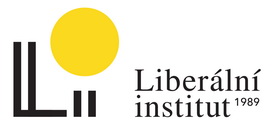Spolu s dalšími think-tanky sdruženými v síti Epicenter jsme se zúčastnili druhé veřejné konzultace ke Globální strategii ke zredukování nebezpečného užívání alkoholu, kterou vyhlásila Světová zdravotnická organizace (WHO).
Shrnuli a doplnili jsme argumenty z našeho předchozího přípisu.
Celá naše konzultace v angličtině ve formátu PDF a jako text:
Summary
Like we said in our previous submission: the proposal is misguided, falls outside the World Health Organization’s (WHO) main mission, and would yield adverse results. The proposed initiative will result in even more harm; as historical evidence suggests. We plead with the WHO not to go ahead with the plan as currently designed.
Don’t we have a pandemic to worry about?
We find it truly mind-boggling that in an era of rising illiberalism and outright hostility to supranational institutions, the WHO would find it worthwhile to poke a bear in the eye with the proposal to cut alcohol consumption by 20%. Not harmful use, but consumption as such.
This is made all the more confusing by realizing that resources are needed to deal with covid–19 and other diseases, like malaria. It defies reason why the WHO and Member States would spend resources to combat benign alcohol consumption.
Moreover, the goal of reducing alcohol consumption by 20% reduction is about as far-fetched as it can be. In the early 1920s USA, during an outright prohibition on alcohol consumption, combined with a pretty sever economics recession, alcohol consumption is estimated to have fallen only by about a third.[1] It is clearly inconceivable that a much wealthier society that is still legally allowed to drink alcohol, would reduce its consumption anywhere close to that level.
Like we stated in our previous submission, this approach would mostly hurt the least well-off. We consider the adverse effects of this policy to be in direct contradiction to the WHO’s basic principles.
Increasing market concentration
We stand by our previous submission regarding adverse effects in markets for alcohol. Omitting references (all of them are to be found in the previous submission), we repeat:
Economic literature is quite clear that the suggested policies would lead to these effects:
- increased market concentration
- higher prices
- lower quality
And because health is a luxury good,[2] spending more on alcohol must mean spending less on health. Should the WHO really be pushing people to have less resources to spend on health care?
Informal and illegal markets
Drinking alcohol has been a cultural and social phenomenon for most cultures on Earth for quite some time. It is not only a thing of the past, it is also a thing of the future since such – in some ways essential – parts of human behavior do not change overnight. This is not an apology for harmful use; it is simply a description of the world as it is. Understanding the true nature of alcohol consumption rather than some version of reality that we would prefer is essential for setting up the right course of actions when we see the need.
Furthermore, as opposed to cigarette regulation, alcohol regulation is always doomed to fail. Whereas tobacco does not grow in everyman’s backyard and home production of cigarettes is therefore rather difficult, informal production of alcohol is easy, well-understood, and very common.
There is, of course, no need to remind ourselves of the infamous example of the 1920s prohibition in the United States which was full of violence and abuse. This was a result of alcohol-consumption policy gone wrong. Unfortunately, there is more recent story from the Czech Republic from the early 2010s when existing alcohol restrictions led to death of 50 people and permanent damage for many more in an unexpected turn of events. This is not an ancient history; this is still very much in living memory.
People will not stop drinking alcohol and getting intoxicated. Poor consumers will have to switch to illegal drinking of moonshine or substitutes such as technical alcohol and wealthier consumers will replace more expensive drinks with cheaper ones that are often of lower quality. Increased usage of harder drugs in case of prohibitive measures imposed on alcohol consumption is well documented.
The proposed changes in the WHO’s position might result in an overall decrease of alcohol consumption in yearly statistics, but this will be outweighed by an increase of informal and illegal alcohol consumption, switching to moonshine, lower quality alcohol, or harder drugs, and most importantly, it will lead to more fatalities. This is certainly not the course of action we would recommend.
We repeat: An approach tailored much more narrowly is in order.
Here’s to hoping for a more sensible approach.
Martin Panek & Jakub Skala
Liberální Institut, Czech Republic
August 30, 2021
[1] https://www.bu.edu/articles/2020/pov-the-100th-anniversary-of-prohibition-reminds-us-that-bans-rarely-work/
[2] This is not a moral statement, purely an economic one. See generally http://www.oecdbetterlifeindex.org/topics/income/



